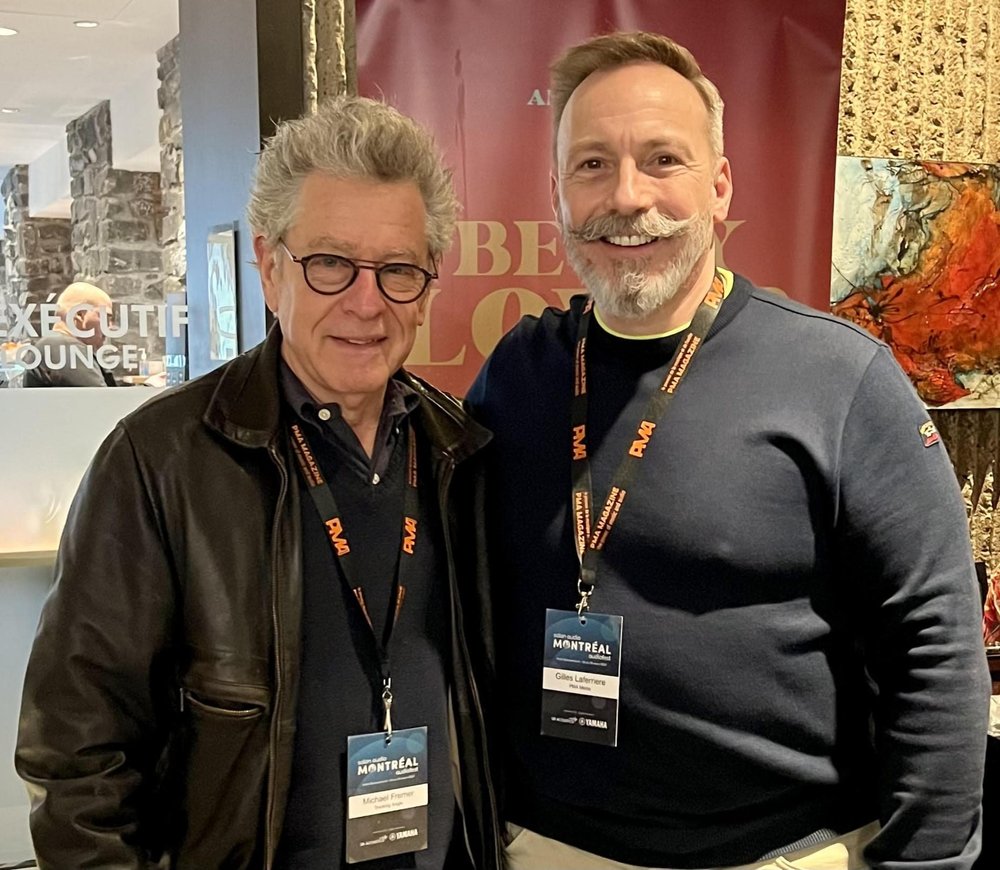
It was early Sunday morning when I met veteran audio critic Michael Fremer, aka Mikey, suitcase in hand, preparing to return home from his visit to the Montreal Audiofest. He’d been invited by the show’s organisers to present his popular turntable setup seminar along with the show’s annual Lifetime Achievement Awards, conferred on those who’ve made significant contributions to the audio industry. What Mikey didn’t expect was that he himself would be bestowed the award in recognition of his decades-long contributions to audio reviewing and his unwavering championing of vinyl playback.
“That was totally out of the blue. I had no idea that was happening,” Mikey says after I congratulate him on his win. “They kind of ambushed me.”
In this exclusive interview with PMA Magazine’s Gilles Laferriere, Mikey speaks frankly—with the opinionated eye of a critic, but at times poignantly—about a variety of things he feels compelled to get off his chest, including how Audiofest exhibitors should up their game, the importance of manufacturer longevity, and his return to The Absolute Sound following his split from Stereophile.
I ask Mikey why he’s never been to the Montreal Audiofest, now in its 34th edition, until now.
“It’s right around my birthday and my wife insists that I stay home for my birthday,” he says. “This year was special, so I came. And it’s fun. It’s a great show. The people, the hotel, everything about it is great. I really had a good time, and the gala last night was insane! In America, in half the states, having an event with a Drag Queen on stage would be illegal. It’s pathetic.
“The vibe here is lower key, and everybody’s happier. It’s very tough right now in the US. The country is split apart in a very bad way. And it’s not just political. It’s split apart because half the people have different sets of facts. They don’t believe things. What happened on January 6—a lot of people don’t think it happened.
“And a lot of people in power who know better are just playing it out. I’ve never seen anything like it. But anyway, the hi-fi is good.”
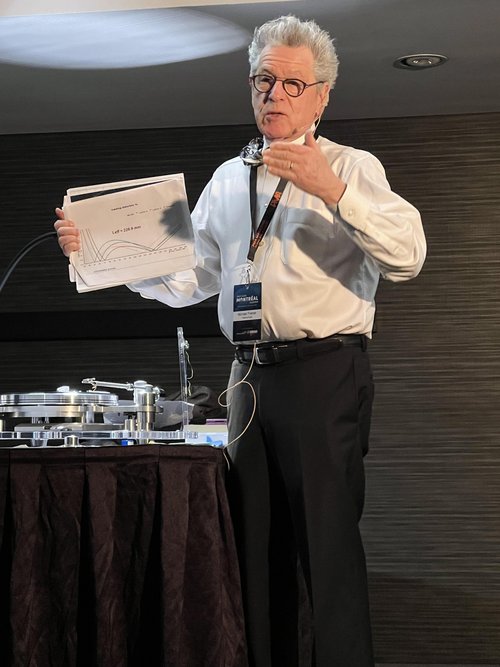
His vote for best audio show in the world?
“High End Munich is something unto itself. There’s really nothing like it, because when you go there in the spring, that’s when business happens for the whole industry. And you really see that it’s a large-scale industry. You see big businesses there year after year—the same big companies. They’re surviving. They’re building products, they’re selling and distributing all over the world.
“And the show is open for consumers, too, which is really interesting. Consumers get to see the business side of it, which I think gives them a certain sense of confidence that if they invest in a product, the chances are it’ll be supported over the years. And that’s something I think consumers have to take into account—a company’s longevity. Consider what kind of investment you’re making. What are you going to have in five years if that company’s gone?
“There are a lot of mom-and-pop businesses at the smaller regional shows in the States, and it becomes a point of contention for the bigger stores that invest and come there and show their gear. They say to themselves, ‘why am I supporting this show? I’m allowing these little guys to come in and steal my business and sell out the back door and not pay sales tax and I lose business and I’m paying for it.’ That tension is coming to a head this year. I think a lot of the big stores that would normally exhibit at AXPONA are not coming for that reason. And AXPONA can’t not have these little stores. These little dealers and little manufacturers are their bread and butter. It’s going to be an issue that’s going to get worse over time.
“Another fantastic show is the one in Warsaw. The Poles are music lovers. Their airport is called Frederick Chopin. In America, if you named an airport for Frederick Chopin, you know what people would say? Hey, who’s this chopping guy? What is he chopping? Is his blade sharp?”
What did he think about the Hong Kong show?
“A great show. Also on a whole different level, with a focus on classical music and frequented by serious music lovers. But for political reasons, I won’t attend it anymore. If I say the wrong thing, I could get arrested, and I often say the wrong thing. Maybe I’ll go back one day, we’ll see.”
General consensus on the exhibits at the Montreal Audiofest?
“As a critic, I noticed a lot wrong with the way exhibitors showed their products,” he says. “There should be better lighting. Signage was terrible. If you have people coming into your room, there should be a sign next to each product. It doesn’t have to be detailed, but here’s the name of it, the brand, here’s what it does, here’s what it costs.
“And each room should have a component sheet. Okay, it’s important for me, as a reviewer, to have one, but there should be one for the consumer, too. Their head is going to spin from this show, so they should be able to go home and go, ‘oh yeah, there was this, and this, and here’s what it costs. Now I remember that room.’
“And when I walk into a room, and I see whoever’s manning the room just staring at their cell phone or computer, not engaging with visitors, that’s not good. I walked into a big room of a company that invited me there in an email. I walked in and was taking pictures, obviously not just a guy sitting down. And the guy that was at the computer looked up and saw me and looked back down, ignoring me. So, I went through the whole room with video, and then I walked out. I’m not trying to say I’m somebody special, but they invited me into this room. I don’t want to have to go, ‘hey, I’m here’. But this guy just sat there at his computer.
“Exhibitors should engage every visitor. And they don’t do it. They’re paying all this money to come here, and they don’t take advantage of their opportunity.”
What about the sound of the rooms in general? “Hotel rooms are notoriously bad,” he said. “Some people can get good sound in a hotel room. That’s a miracle. If the exhibitor got good sound in a tiny little boxy room, good for them. But it’s why I don’t review equipment under show conditions.”
“2022 was an eventful year in your career,” I say.
“Yes. I left Stereophile and returned to The Absolute Sound.”
“Do you want to tell us what happened?”
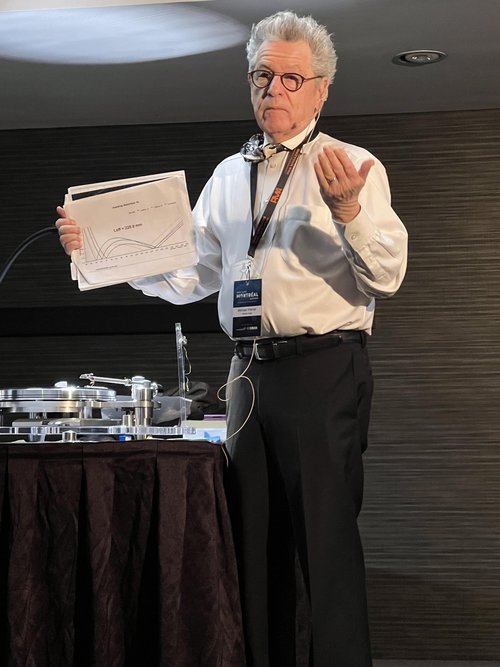
“Sure. (in 1986) I started my career at The Absolute Sound (TAS), where I was the music editor. I got to review a few pieces of equipment, but not much. Harry Pearson mentored me. The first piece of equipment I reviewed was a pair of speakers. I wrote the review and mailed it to Harry, who sent it back with “no, no, no” written all over it in red pencil. I had to rework the review six times before it was publishable. When it was, the speaker company was out of business! (laughs) I learned so much just by reading the magazine.
“But I had to leave TAS because it was kind of going under at that point. By then, I had made enemies of everybody at Stereophile because I was such a bulldog for Harry and TAS and the culture the magazine represented, which I felt Stereophile didn’t have, even though it was a good magazine. But I had to leave, and John Atkinson was kind enough to give me the opportunity to write for his magazine when he could have easily said no.”
Not everyone at team Stereophile was thrilled about Mikey’s arrival. “I went to one of Stereophile’s annual CES-type parties, when (late magazine advertising executive) Ken Nelson, who walked with a cane, used his cane to block my entrance and said, ‘You’re not coming in here, Mikey, you’re an enemy.’ Wow, okay. I don’t mind making enemies. If you’re afraid of making enemies, don’t be a critic, be a publicist.
“So, John asked me what I wanted to write, and I said an analogue column, to which he replied that I’d be writing myself out of a column because analogue was going to go away in a couple of years. I said if analogue goes away, I’ll change jobs. John accepted and asked how much I wanted to be paid for it. I gave him a price, which wasn’t a lot of money—I’ve consistently, in my life, undervalued myself, which is a self esteem issue that I’ll deal with in my older age.
“Six months later, Larry Archibald, who co-owned the magazine with John, contacted me to say they were doubling my pay. They saw the result of what I was bringing to the magazine, which I didn’t but they did. For that, I’ll forever be grateful to John and Larry.
“At some point, I saw my career ascending and people paying attention to me. I’d come to these shows and people wanted to take pictures with me and they thanked me and it was a fantastic feeling. I never thought my work would become that kind of thing. Things were going well, but eventually I needed more money and they didn’t have more for me.
“So, while I was still writing for Stereophile, (in 1995) I started my own print magazine, The Tracking Angle, which ran for four years. It was difficult because we couldn’t get advertising. We were promoting a physical medium just when the record industry consolidated and didn’t care about that anymore. I lost some money, but it was worth it considering what I did and because I had all that content I could put online. I started my own website, musicangle.com, and was growing that while Stereophile was getting sold repeatedly. The owners at Stereophile, those before the current ones, told me they weren’t happy that I had a website, because I was diluting my brand. I said ‘yeah, I’m diluting my brand, and I’m growing my bank account, which is a fair trade to me.
“They then made me an offer to become an employee. I’d never been an employee. Even when I supervised the (movie) soundtrack to Tron for Disney, I was always an independent contractor.
“And over the ten years I was a paid employee, I continued building my brand. I built a website (analogplanet.com) from scratch. I named it, I got the writers, I did the whole thing. I built a YouTube channel. I wasn’t hired to do a YouTube channel, but I thought that’s something you have to do today. I built it up to 52,000 subscribers when Stereophile’s YouTube channel had 3000 to 4000 subscribers.
“I always put in the extra effort. Always. It was good for the magazine and I felt entitled to more money. But the new owner said no, I was too expensive. So that’s what happened.”
Michael then hesitates and gets visibly choked up. After taking a moment to collect himself, he clears his throat and continues.


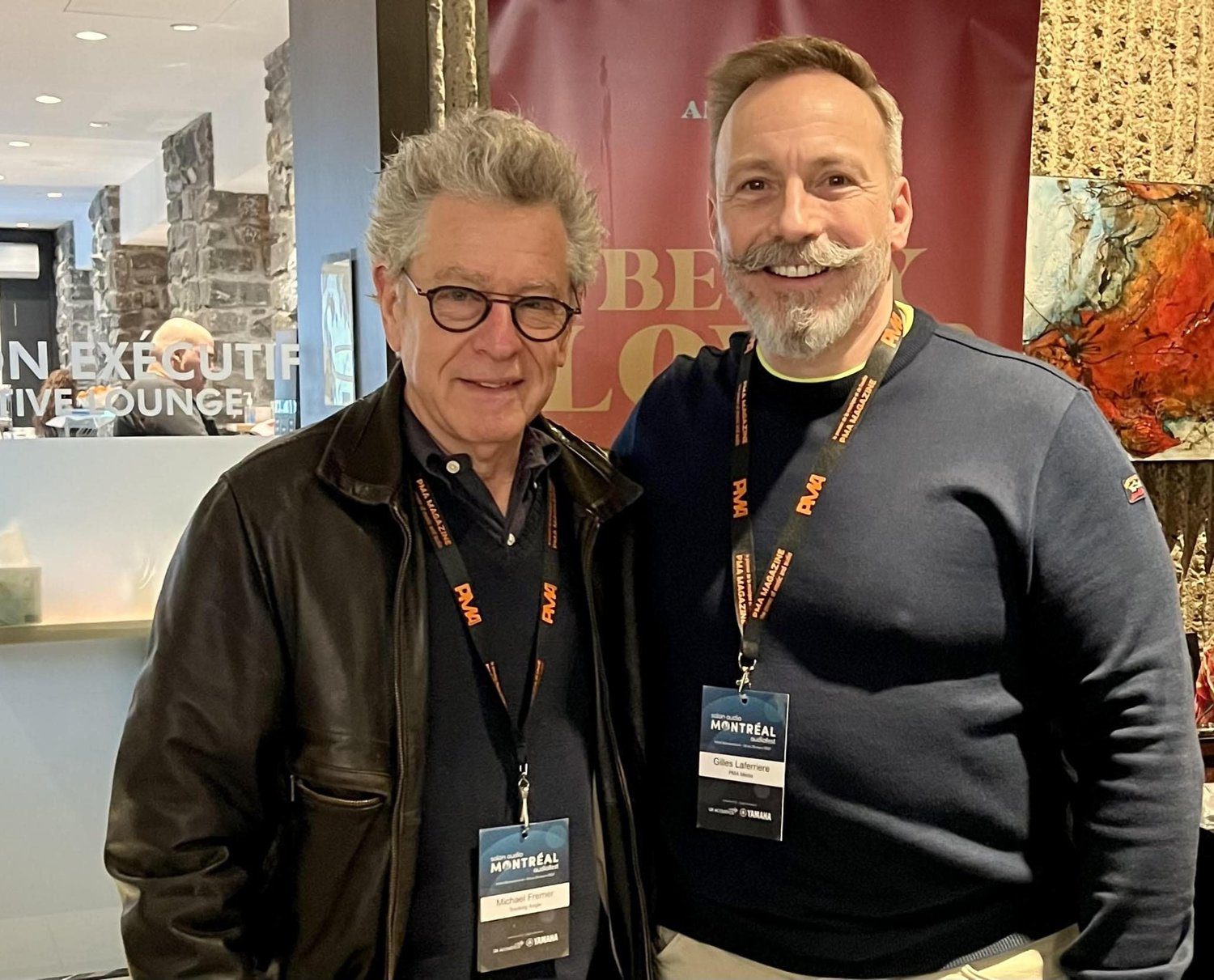

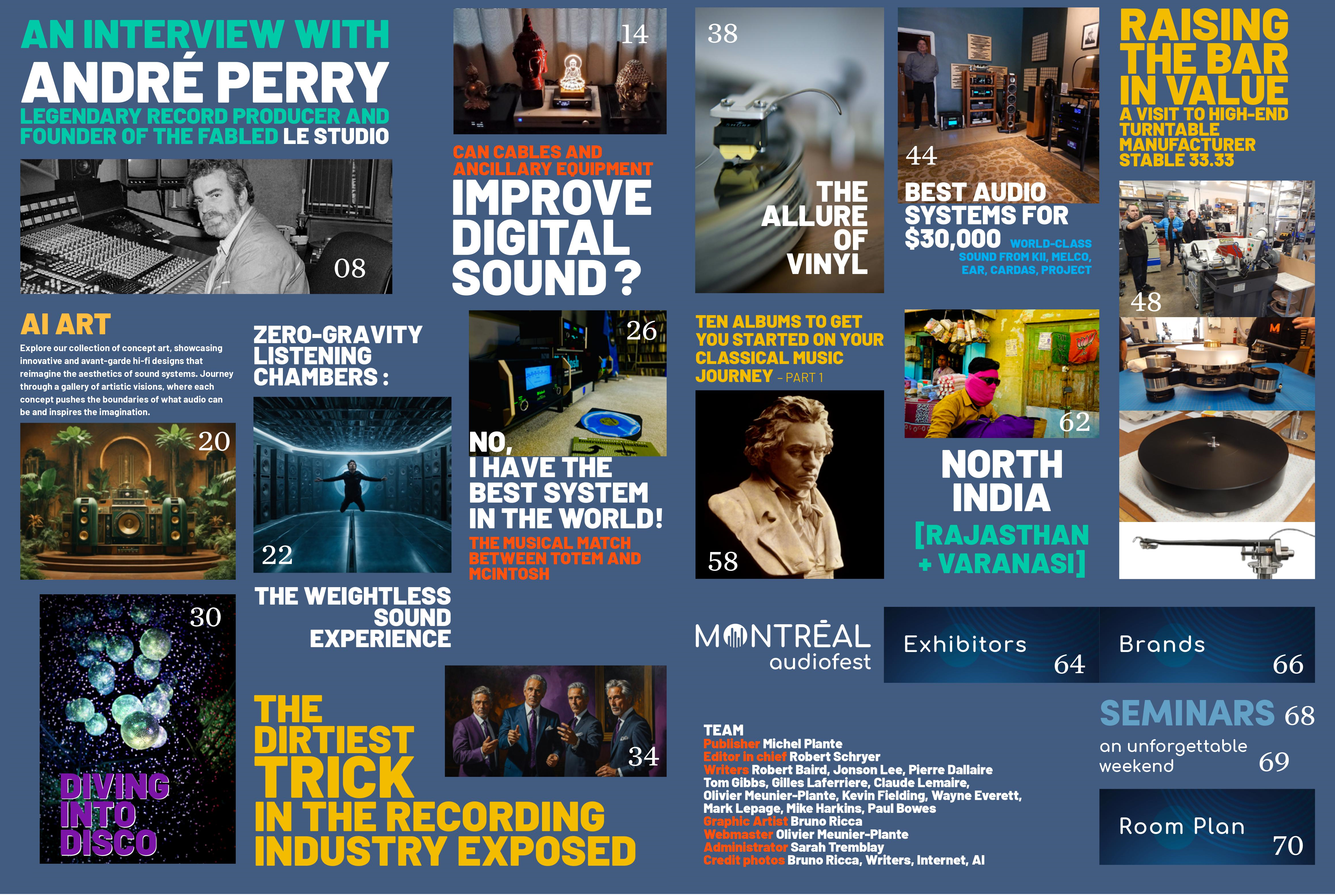
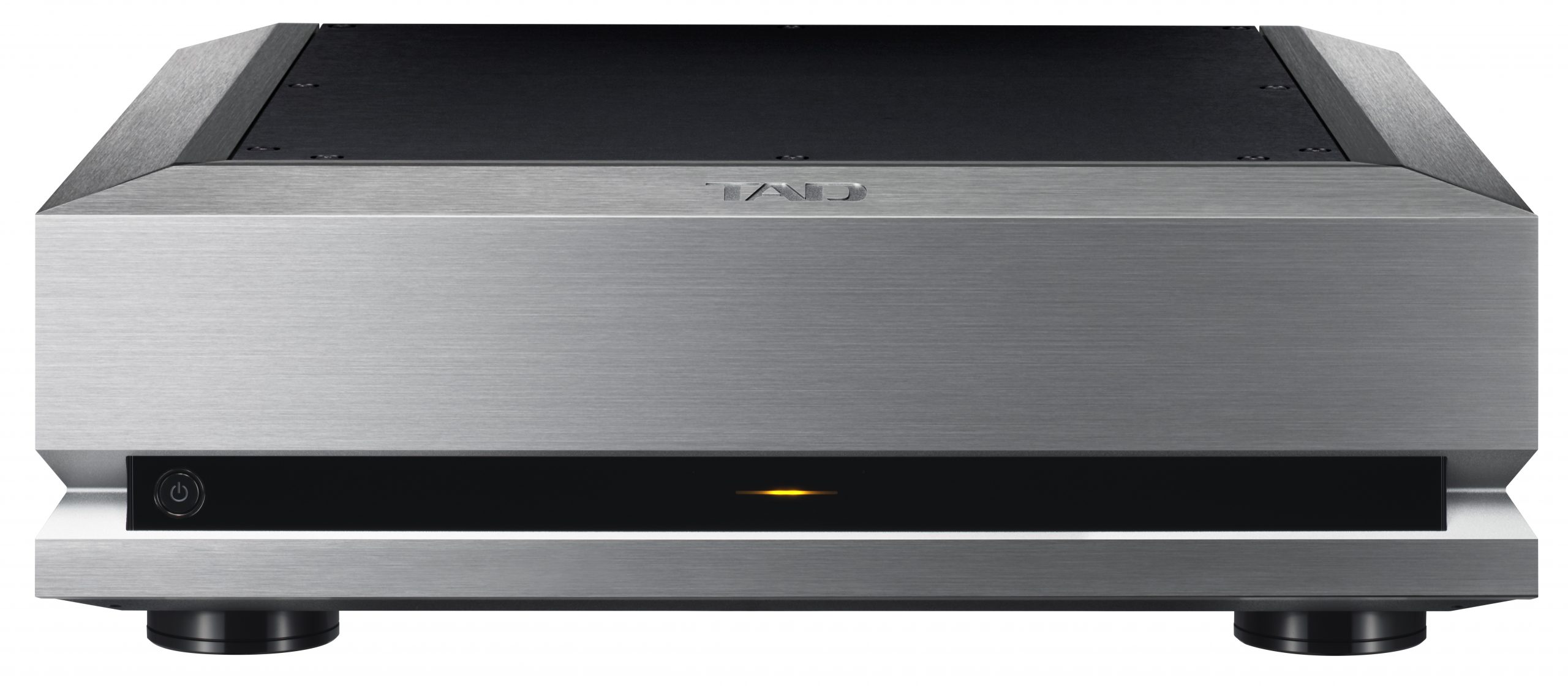




Leave a Reply